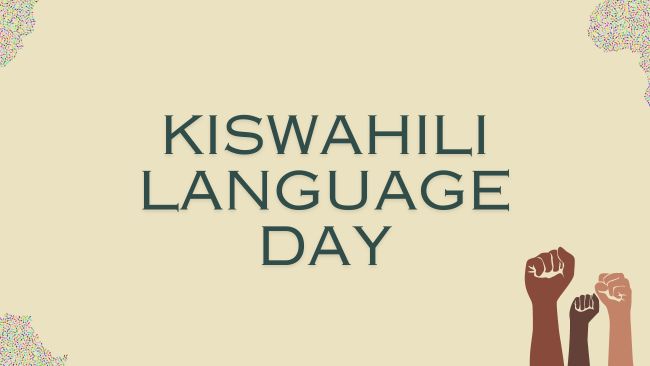Kiswahili’s global ascent, our shared future

DAR ES SALAAM: YESTERDAY, the world united to celebrate World Kiswahili Language Day, a momentous occasion marking the remarkable journey of East Africa’s lingua franca from its regional roots to a burgeoning global language.
Now spoken by over 200 million people, Kiswahili stands as a testament to the power of language in connecting diverse communities and fostering a shared identity.
This annual observance, held every July 7th, serves as a powerful reminder of our linguistic heritage and its ever-expanding influence.
The official recognition of July 7th as World Kiswahili Language Day by the United Nations General Council represents a truly significant milestone for the Kiswahili language and its vast community of speakers.
This landmark decision not only elevates the status of Kiswahili on the international stage but also formally acknowledges its profound cultural, educational and social significance, cementing its place among the world’s most influential tongues.
Beyond mere communication, this global recognition shines a spotlight on the rich cultural heritage embedded within Kiswahili-speaking communities.
It brings unprecedented international attention to the language, highlighting its pivotal role in promoting African culture, identity and values.
This acknowledgment is crucial for preserving and celebrating the unique tapestry of traditions that Kiswahili embodies.
Over the decades, Kiswahili has evolved into a truly pan-African language, serving as a powerful force for unity, identity and dialogue across myriad linguistic and cultural borders.
Its melodic cadence and inclusive nature have allowed it to transcend tribal and national divides, becoming a symbol of African solidarity and shared aspirations.
This increasing global prominence is poised to unlock a wealth of educational and economic opportunities.
ALSO READ: Nations celebrate World Kiswahili Language Day
The heightened recognition is expected to spark greater interest in learning Kiswahili worldwide, potentially leading to its broader incorporation into international curricula.
This, in turn, could foster more resources and avenues for students globally to delve into the language, simultaneously opening new economic pathways linked to Kiswahili proficiency.
The ongoing 4th World Kiswahili Language Day celebrations in Kigali, Rwanda, vividly illustrate this growing momentum.
Speaking at the event, Rwanda’s Minister of State for Regional Cooperation, Gen (Rtd) James Kabarebe, affirmed Kiswahili as a potent instrument for regional integration, cultural unity and sustainable development.
His words resonate deeply with the aspirations of the East African Community.
To further amplify Kiswahili’s reach, concerted efforts must focus on integrating it more deeply into education systems, both domestically and internationally, while supporting research and academic discourse in the language. Leveraging technology is paramount.
We, in East Africa, need to support initiatives to developing and utilising Kiswahili apps, online courses and ensuring its robust digital presence that will make the language more accessible and vibrant in the modern era.
Promoting Kiswahili also entails celebrating its rich cultural expressions through media and entertainment, fostering international partnerships and advocating for its use in global forums.
Crucially, community involvement, especially among youth and fostering public-private partnerships will ensure that Kiswahili continues to thrive, expanding its use in business, tourism and official communications, truly solidifying its place as a global language for a united and prosperous future.





